Web browser security may not always be the most talked about cybersecurity layer in small and medium businesses, but weak web browser security can sometimes be just the security gap a malicious actor needs to gain unauthorized access to a business’ network. The ubiquity of popular web browsers like Google Chrome, Firefox, Microsoft Edge, and others make vulnerabilities in these web browsers a prime target for hackers, and a business can make themselves an easy target for attacks when they don’t train employees on a few simple measures that can make web browsing more secure. Here, we want to talk about simple yet effective ways your small business can make using your preferred web browser safer!
Web Browser Updates

The first step to ensuring safe web browsing is making sure your web browser is up to date and patched as soon as possible. Just like with device updates, web browser updates will provide important patches to vulnerabilities and exploits that malicious actors are actively taking advantage of. This means that when an employee fails to update their web browser, they may be leaving themselves exposed to attacks that range from phishing campaigns that can only succeed on unpatched browsers to attacks that allow an attacker to easily steal information without the user’s knowledge. Updating a web browser often only takes a quick restart, so SMB employees should make sure to do so quickly and regularly!
IT-Approved Extensions and Add-Ons

At home, users may make use of a wide variety of browser extensions or add-ons that can improve their experience interacting with the web. In the work place, using extensions that have not been vetted by your IT department or IT consultant can sometimes lead to an attack opportunity for hackers. Unfamiliar add-ons can have malicious code embedded in them, which can open the business to attacks once downloaded. Even if an extension is popular and well trusted, malicious actors can try to include fake download links into search results for the extension, leading to users compromising their web browser security when they download a malicious extension thinking it is one they find useful at home.
Disabling Autofill

Sometimes, malicious actors will try to take advantage of trusted features to steal information from users. One commonly exploited feature is autofill as hackers will use it to subtly steal information. An employee can come across a form that needs to be filled out or a website that requests an email address to provide access to content that initially seems legitimate but will ultimately steal additional information using autofill. While the email address field may be the only one visible, a malicious website can be coded to have invisible fields that autofill will complete without the user’s knowledge, so disabling this feature can prevent this from happening and improve web browser security.
Summary
Malicious actors will take advantage of every weak point in a small or medium business’ security posture to launch an attack, so SMBs must promote the proper habits and policies that will keep their network safe. Employees must understand that even a common tool such as their web browser can be used to steal information or launch an attack, so it is critical that web browsers are updated frequently, run IT-approved extensions, and have easily exploitable features disabled. Here at Robinett Consulting, we value educating small businesses on all the ways hackers will try to attack their network, and if you think your business needs a risk assessment or additional training, then reach out to our team today!




